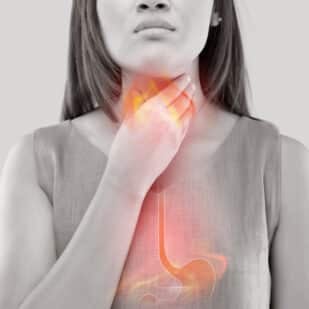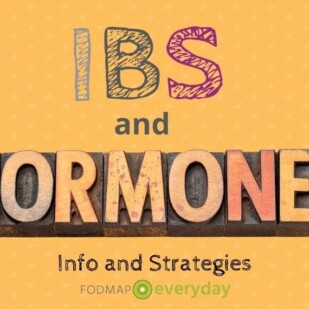In the realm of managing irritable bowel syndrome (IBS), understanding the intricate connection between hormones and gastrointestinal health is crucial. If you’ve ever noticed that your IBS symptoms tend to worsen at specific times during your menstrual cycle, you’re not alone. This article delves into the impact of hormones on IBS symptoms and provides actionable strategies to alleviate hormone-induced gut distress.

Unraveling the Hormone Puzzle
Hormones are like silent messengers in our bodies, orchestrating various physiological functions within the endocrine system. While numerous hormones exist, estrogen and progesterone, often associated with women, take center stage in this discussion.
Gender Disparities in IBS
Gender plays a pivotal role in IBS, with women being twice as likely to experience it compared to men. Women predominantly report symptoms like bloating, constipation, abdominal pain, and incomplete bowel movements, while men tend to grapple more with diarrhea. These gender-based variations stem from differences in GI transit time—the duration food takes to traverse the digestive tract—leading to distinct symptom profiles.
Symptom Onset and Progression
The onset of IBS symptoms diverges across genders. Women often experience peak symptom severity during their teenage years through their forties, with a gradual decline later in life. Conversely, men tend to maintain consistent symptom patterns from young adulthood to their senior years.
The Hormonal Roller Coaster
To comprehend the link between hormones and IBS, let’s revisit basic biology—specifically, the menstrual cycle. It comprises four phases: menstruation, the follicular phase, ovulation, and the luteal phase. Estrogen and progesterone levels fluctuate throughout this cycle, impacting how we experience IBS symptoms.
- Menstruation Phase: Symptoms such as stomach pain, diarrhea, bloating, and nausea are more prevalent when estrogen and progesterone levels are at their lowest.
- Follicular Phase: Estrogen levels gradually rise during this phase, followed by a post-ovulation drop in both estrogen and progesterone.
- Luteal Phase: Bloating becomes more frequent during this phase, the second half of the menstrual cycle.
These hormonal oscillations significantly influence our perception of IBS symptoms due to their role in regulating the nervous system and the gut-brain axis—an integral player in IBS development and symptom induction.
Read: IBS & Periods – How Does Your Period Impact Your Gut?
Navigating the Gut-Brain Axis
The gut-brain axis dictates visceral sensitivity, impacting how individuals with IBS experience increased sensitivity and pain related to bloating and gas compared to those without the condition. Hormones also affect GI motility—the contraction and expansion of intestines during digestion—and transit time—the duration food stays in the GI tract. These factors can profoundly influence gas, bloating, abdominal pain, constipation, and diarrhea.
Read: The Gut-Brain Connection & IBS: It’s Not All in Your Head
Moreover, sex hormones influence intestinal permeability, which tends to be heightened in IBS-D (diarrhea-predominant IBS) cases. They also impact fluid and enzyme secretions, including pancreatic enzymes responsible for digestion, and modulate immune functions. Estrogen even contributes to the production of serotonin, the “feel-good” chemical. When estrogen levels dip, susceptibility to abdominal pain and cramping, common menstrual symptoms, increases.
Noteworthy Insights
- 40% of women acknowledge the effects of their menstrual cycle on IBS symptoms, water retention, and concentration, compared to 33% of healthy women.
- IBS sufferers often experience dysmenorrhea (absence of menses) and premenstrual distress syndrome more frequently than healthy women.
- Women with polycystic ovary syndrome (PCOS), an endocrine disorder leading to irregular menstrual cycles and missed periods, have a higher incidence of IBS.
- Beyond menstruation, various factors influence hormonal levels, including birth control pills, pregnancy, hormone replacement therapy (HRT), estrogen suppression medications, and menopause.
Menopause’s Ambiguous Impact
While the relationship between menopause and IBS remains a subject of debate, data indicates that IBS symptoms may improve over time post-menopause, though some women may experience worsened symptoms. Symptoms can emerge across the age spectrum, with women presenting symptoms at various life stages.
Read: Menopause and IBS: What’s Happening & What to Expect
Pregnancy’s Influence
Pregnancy brings elevated levels of ovarian hormones and opioid-mediated antinociception—the pain-blocking mechanism that may reduce symptoms by acting on the brain’s pain center. Prolonged GI transit time during pregnancy can contribute to constipation and subsequent gas and bloating. Additionally, increased visceral sensitivity and pressure from the baby against the intestinal wall may cause abdominal discomfort.
Read: Pregnancy and IBS Series of Articles
Hormone Therapies and Their Impact
- Birth Control Pills: These medications modify progesterone and estrogen levels, but their influence on IBS symptoms varies among individuals. Consult your healthcare provider to determine the best option for you.
- Hormone Replacement Therapy (HRT): Studies suggest that HRT can increase the prevalence of IBS symptoms, induce IBS symptoms in non-IBS patients, and prolong symptoms due to hormonal alterations in the GI tract.
Endometriosis and IBS
Recent evidence highlights a connection between IBS symptoms and endometriosis, with overlapping symptoms like visceral sensitivity, bloating, diarrhea, constipation, and abdominal pain. It’s advisable to rule out endometriosis before diagnosing IBS in women. Successful management of endometriosis often leads to relief from concomitant IBS symptoms.
Read: Understanding the Relationship Between Endometriosis & IBS
Strategies for Managing Hormone-Induced IBS Symptoms
To regain control over hormone-induced IBS symptoms, start by tracking symptom timing diligently. Maintain an IBS symptom log, paying close attention to symptom severity relative to your menstrual cycle. Record the onset and conclusion of your period.
Treatment Options:
- Stricter Low FODMAP Diet: Consider a more restrictive approach during times when hormone-induced symptoms are prevalent. Adjust your FODMAP intake, paying attention to portion sizes of moderate (yellow-coded) foods. Expand your low FODMAP meal and snack repertoire to meet your nutritional needs.
- Fiber Modification : Tailor your fiber intake to include more low FODMAP sources or FODMAP-friendly fiber supplements to regulate bowel movements. Read: Fiber and IBS: What You Need To Know
- Alternative Therapies: Incorporate practices such as yoga and meditation to alleviate IBS symptoms during challenging periods. Consistent engagement may enhance motility and improve the gut-brain connection. Read: IBS & Yoga Series
- Stress Management: Stress negatively influences the gut-brain connection, exacerbating IBS symptoms. Implement stress-reduction techniques like exercise, meditation, deep breathing, therapy, and pursuing joy in life to enhance mental well-being. Read: IBS & Stress Series
- Exercise: Light, low-impact exercises like walking, swimming, and biking can alleviate constipation, excessive gas, and transit time issues. Start with gentle workouts, as intense exercises may worsen symptoms for some individuals.
- Hydration: Maintain optimal fluid intake (64 to 80 ounces daily, adjusted based on factors like weight, heat, and exercise) to meet your daily needs.
- Supplements: Explore the potential benefits of peppermint capsules, Simethicone-based products, digestive enzymes, and targeted hypnotherapy for IBS symptom management. Read: Medications & Supplements for IBS
This comprehensive guide aims to empower individuals, particularly women, in managing hormone-induced IBS symptoms. By understanding the interplay of hormones and gut health, you can tailor strategies to gain control over your digestive well-being
This article was originally published on FODMAP Everyday®.







